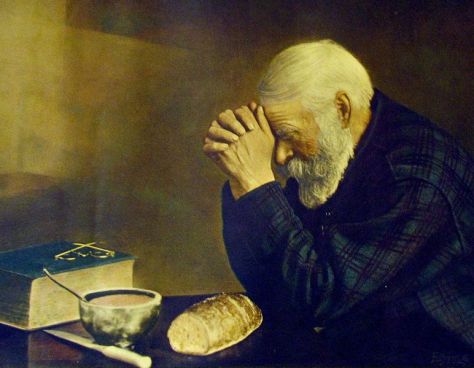
Spiritual Sunday
Today’s gospel reading is a passage that got mentioned in a post from a couple of weeks ago. In a workshop on contemplative prayer, the Rev. Tom Ward cited it to (1) emphasize the importance of prayer and (2) illustrate Jesus’s sense of humor. The passage brings to mind one of my favorite George Herbert poems.
Jesus’s words (Luke 18:2-7) emphasize the “need to pray always and not to lose heart.” Interestingly, while the parable contrasts God with an unjust judge, it does so in a way that suggests some similarities:
In a certain city there was a judge who neither feared God nor had respect for people. In that city there was a widow who kept coming to him and saying, “Grant me justice against my opponent.” For a while he refused; but later he said to himself, “Though I have no fear of God and no respect for anyone, yet because this widow keeps bothering me, I will grant her justice, so that she may not wear me out by continually coming.”
Jesus then suggests that, if you want to get God’s attention, be like this widow. If you cry for justice day and night, sooner or later God will say, “Enough already! Okay, here’s justice.”
To be sure, Jesus then clarifies that God doesn’t demand such persistent prayer. Nevertheless, the similarity has been floated and the point made: pray to God as if you are a frustrated widow dealing with an indifferent judge:
And the Lord said, “Listen to what the unjust judge says. And will not God grant justice to his chosen ones who cry to him day and night? Will he delay long in helping them? I tell you, he will quickly grant justice to them.
God is sometimes portrayed as an indifferent judge in Herbert’s poetry. In “Denial,” he imagines God as deaf to his devotions, even though he has benumbed both his knees and his heart crying out, “Come, come, my God. O come!” He even mentions God’s unreasonableness:
O that thou shouldst give dust a tongue
To cry to thee,
And then not hear it crying! All day long
My heart was in my knee,
But no hearing.
Yet the poem ends like a chord resolution, with the poem’s half rhymes (pierce/verse, tongue/long) and lack of rhymes (disorder/alarms, hearing/discontented) shifting to a stanza full of rhymes:
O cheer and tune my heartless breast,
Defer no time;
That so thy favors granting my request,
They and my mind may chime,
And mend my rhyme.
The poet’s heart is no longer like an untuned instrument. God has heard after all, and we are left with a feeling of peace.
But only after considerable agony.
Denial
By George Herbert
When my devotions could not pierce
Thy silent ears,
Then was my heart broken, as was my verse;
My breast was full of fears
And disorder.
My bent thoughts, like a brittle bow,
Did fly asunder:
Each took his way; some would to pleasures go,
Some to the wars and thunder
Of alarms.
“As good go anywhere,” they say,
“As to benumb
Both knees and heart, in crying night and day,
Come, come, my God, O come!
But no hearing.”
O that thou shouldst give dust a tongue
To cry to thee,
And then not hear it crying! All day long
My heart was in my knee,
But no hearing.
Therefore my soul lay out of sight,
Untuned, unstrung:
My feeble spirit, unable to look right,
Like a nipped blossom, hung
Discontented.
O cheer and tune my heartless breast,
Defer no time;
That so thy favors granting my request,
They and my mind may chime,
And mend my rhyme.
Further thought: I ran into Tom Ward after posting this essay and he observed that Herbert would have been aided by Jesus’s sense of humor. According to his mentor Thomas Keating, to pray well we should try less hard, not more.
Then again, Herbert himself comes to a version of this realization in many of his poems, including this one, “The Collar” and “Love (III).”